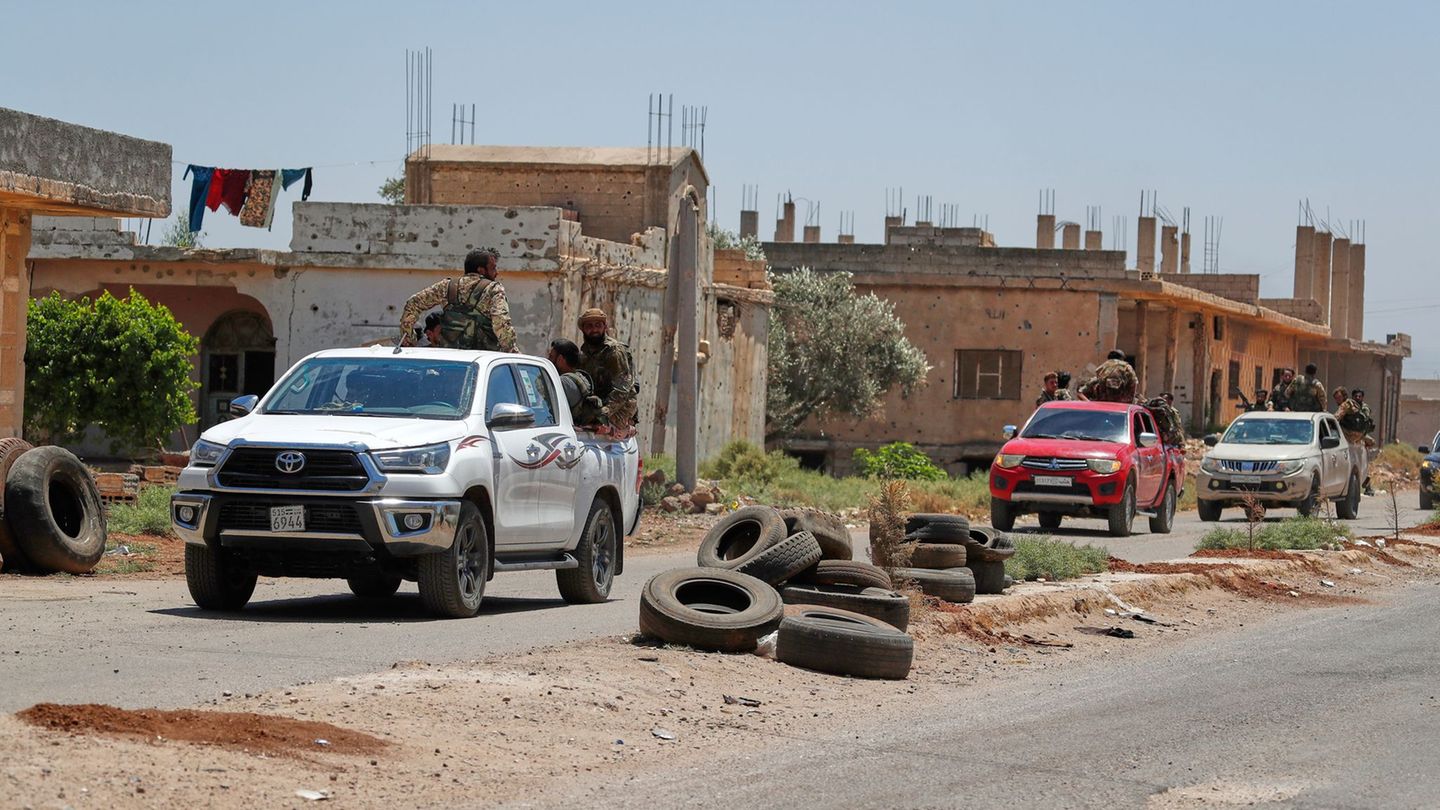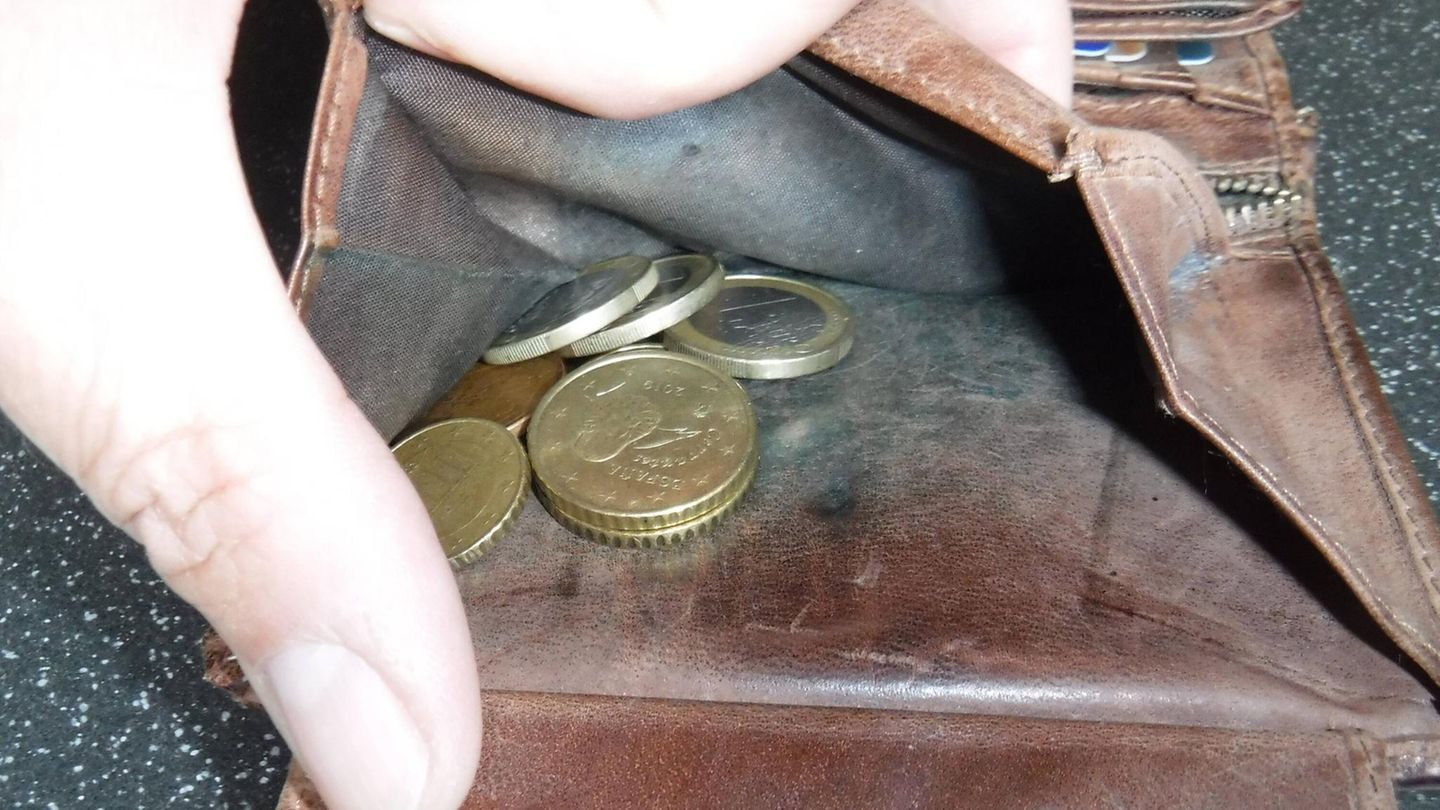Conflicts
After fighting: hundreds of dead and chaos in Syrian province
Copy the current link
Add to the memorial list
The region is probably just preserved from a larger conflict. But the flame of fighting in Syria shows how unstable the situation there is still there.
After the days of fighting in the Syrian province of Suwaida, the consequences of the arguments are becoming increasingly clear. According to the Syrian Observatory for Human Rights, more than 500 people died, including many civilians. Dozens are said to have been executed. According to eyewitnesses, the provincial capital of the same name is also cut off of important supply services. Residents describe a city in shock.
The stronghold of the Drusian minority had become the scene of bloody clashes between Druen militias on the one hand and Sunni Bedouins and government forces on the other. Most recently, Israel had intervened in the conflict and, among other things, bombed government buildings in Damascus.
Syria’s temporary president Ahmed al-Sharaa sharply condemned the Israeli air strikes. Israel tries to move his country into a war, said Al-Sharaa in a speech broadcast in the morning to his compatriots. Meanwhile, criticism of the government troops from Damascus came from the activists of the Syrian observation center for human rights and also from Germany’s Foreign Minister Johann WadePhul.
Activists: 83 Drusian civilians executed
The Syrian Observatory for Human Rights blamed the Syrian government troops for serious human rights violations, including the execution of 83 Drusian civilians. Her bodies were left on the side of the road, partly tied up or burned. “There were corpses everywhere,” said a volunteer of civil protection in the city.
For fear of retaliation from Drusen, Sunni Bedouins are said to have left several districts. “Both sides live in fear and uncertainty in Suwaida,” said Rami Abdel Rahman, head of the Observatory for Human Rights based in Great Britain.
“Like a nightmare that has become true”
According to the observation center, the humanitarian situation in Suwaida was precarious. The activists called on the international community to make urgent deliveries. “It was like a nightmare that had become true,” said a Drusin from the city in a telephone conversation with the German Press Agency. Houses were placed in rubble, people in grief or on the run.
Even after the end of the fights, the water and power supply was cut off, according to people on site. According to the local health authority, the city’s hospital had to be closed due to damage. Bakeries and markets also stayed at first.
Netanyahu: No Syrian armed forces south of Damascus
Israel, according to his own information, wanted to protect the Druze. The Drusen are a religious minority that emerged from Shiite Islam. They live in Israel, Jordan, Lebanon and Syria.
In Israel, the Drusen do military service differently than most Muslim and Christian Arabs and play an important role in the army there. In their Syrian stronghold of Suwaida, they enjoyed extensive autonomy during the civil war. The new central government in Damascus, led by Sunni Islamists, are skeptical about many drouses.
Israel’s Prime Minister Benjamin Netanyahu also justified the procedure by not leaving Syrian government troops south of the capital Damascus. “We will not allow Syrian armed forces to penetrate the region south of Damascus,” said Netanyahu in a video address.
Due to the intervention of the Israeli military in Syria, a ceasefire came into force and the Syrian armed forces had withdrawn to Damascus, Netanyahu said. The fire break was “reached with strength. Not by asking, not by appeals – with strength,” he emphasized.
Direct conflict with Israel
Al-Schaharaa emphasized that the Drusen would be under the protection of the state and crimes against the minority would be pursued without exception. At the same time, he partially blamed Drusian leaders for the clashes.
A direct conflict with Israel was averted thanks to the mediation by the United States, Turkey and Arab countries, said Al-Sharaa. The security in Suwaida has now been put into the hands of local forces, the temporary president continued.
As the observation center for human rights confirmed, which has a network of informants in the country, the government troops began with the retreat from Suwaida. Drusian militias are said to have received positions in the provincial capital of the same name.
According to Al-Sharaa, the troops had been commissioned to end the fights in the province that had been sparked by “lawless groups” who had been targeting chaos and split. These “gangs” are responsible for crimes against civilians, said the politician.
Wadephul: Do not endanger the country’s stability
Foreign Minister Johann WadePhul called the parties to the conflict to adhere to a ceasefire and not to endanger the country’s stability. The CDU politician said that the weapons would now be silent even after the US partners were placed by the US partners. “It is now of crucial importance that all parties adhere to the agreement and hire the fighting.”
WadePhul shared the attacks on members of the Drusian minority. Those responsible for this would have to be held accountable. The Syrian government is the obligation to protect its citizens from violence or ethnicity from violence. In addition, the government in Damascus must begin an inclusive political process in which all citizens of Syria are represented.
With a view to the Israeli air raids, WadePhul demanded in the capital Damascus, Syria should not become a field of regional tensions. He called “all domestic and foreign actors not to do anything that could endanger the stability of Syria and the transition process”.
dpa
Source: Stern
I have been working in the news industry for over 6 years, first as a reporter and now as an editor. I have covered politics extensively, and my work has appeared in major newspapers and online news outlets around the world. In addition to my writing, I also contribute regularly to 24 Hours World.




